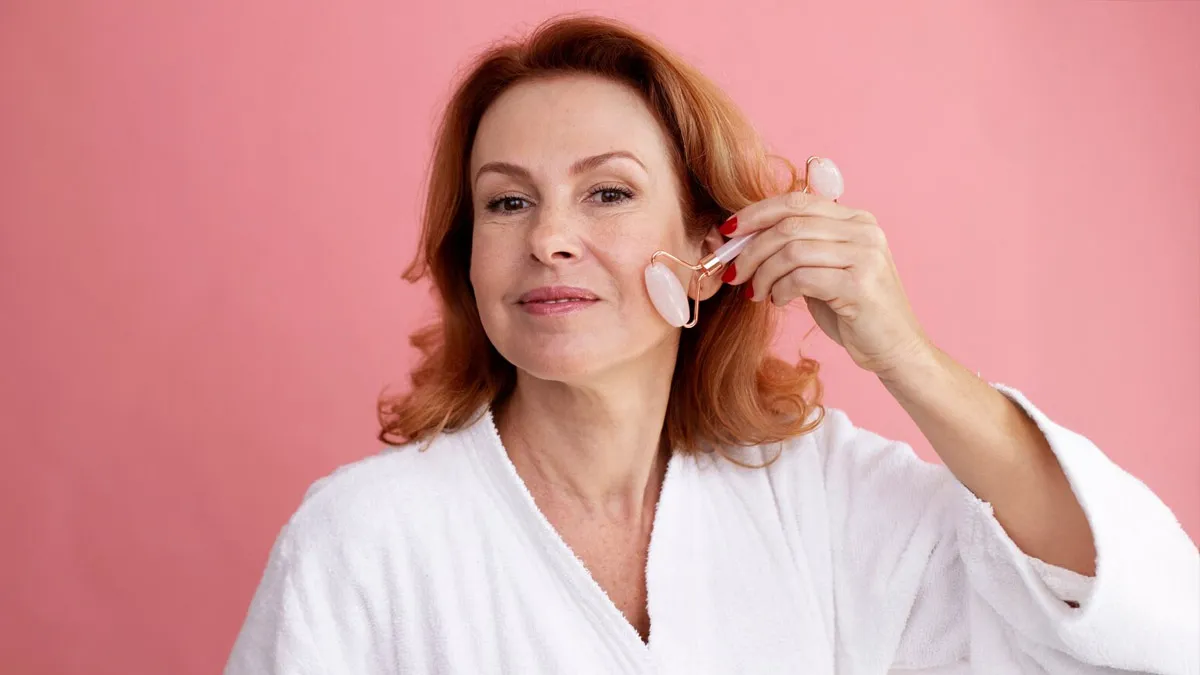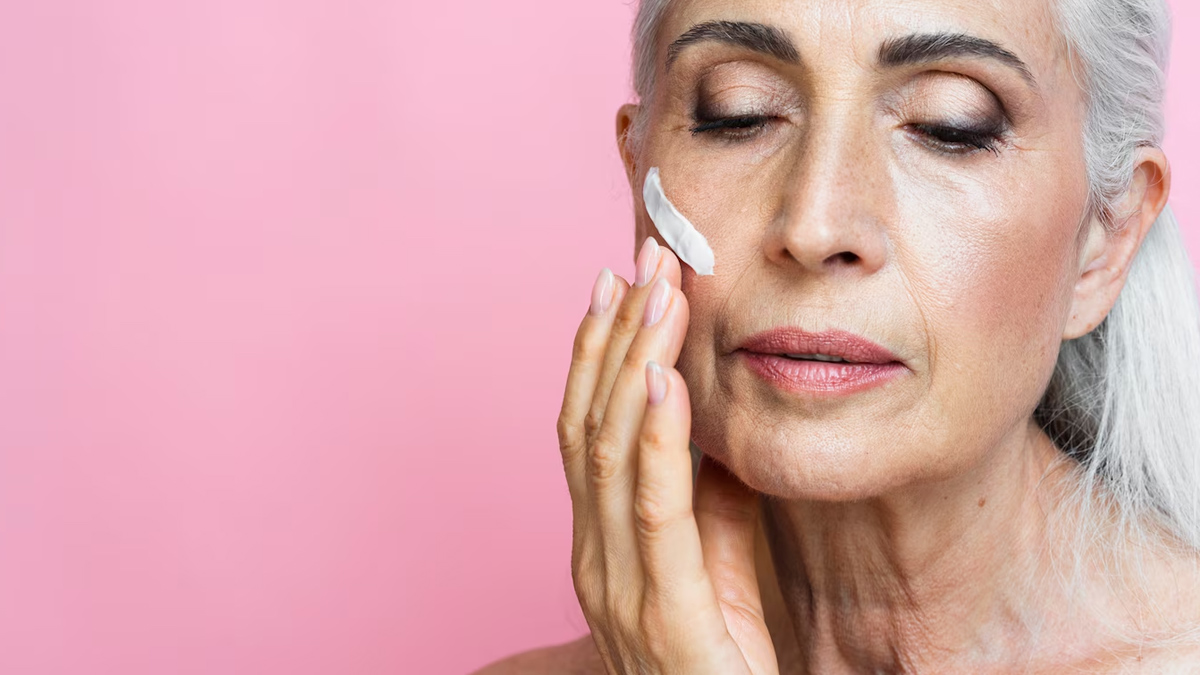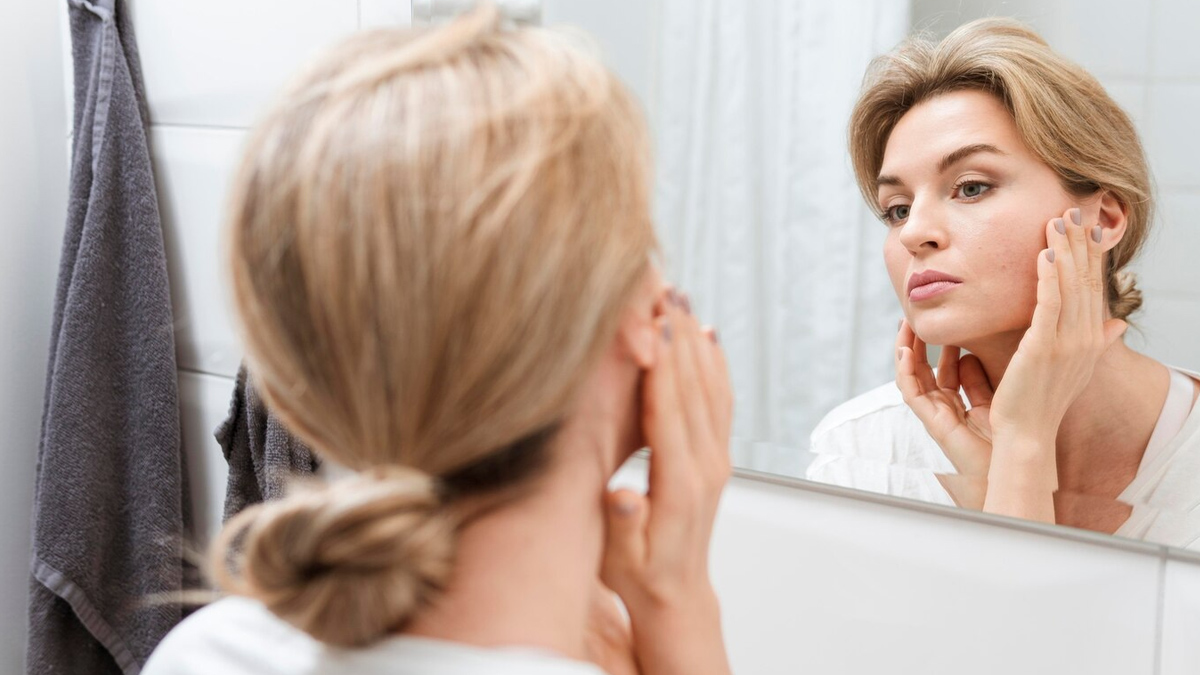
Menopause refers to the end of the menstrual cycle and the reproductive years in a woman's life. It typically occurs between the ages of 45 and 55, though it can vary from person to person. Some of the key characteristics of menopause include hormonal changes, irregular or no menstruation, and symptoms such as hot flashes, night sweats, mood changes, sleep disturbances, and vaginal dryness. However, what many women do not realise are the effects menopause has on their skin. While ageing is a part of the process, menopause can cause other skin-related issues that shouldn't be ignored.
Table of Content:-
Speaking with the OnlyMyHealth team, Dr Suhasini Inamdar, Senior Consultant – Obstetrician and Gynaecologist, Motherhood Hospitals, Indiranagar, Bengaluru, sheds light on the common menopause-related skin concerns and ways to reduce them.
Also Read: Perimenopause In The 30s: Why It’s Happening Earlier Than We Think
How Does Menopause Affect Skin Health?

During menopause, there is a significant decline in the oestrogen and progesterone production by the ovaries, leading to various physical and emotional changes. "This reduced oestrogen results in loss of collagen and water, causing skin to appear thinner, weaker, and less firm or more full," shares Dr Inamdar.
A 2022 review published in Clinical and Experimental Dermatology found links between menopause and several common skin problems, including dryness, itching, psoriasis, and hidradenitis suppurativa.
For some, these skin changes may appear suddenly, while others experience them gradually, says Dr Inamdar, adding that hormonal shifts during menopause can significantly affect the skin’s oil production and collagen levels, leading to increased sensitivity, dryness, sagging, and even adult acne.
Skincare Ingredients To Look For In Products

There has been a rising interest in skincare products and trends, with more people seeking effective solutions for healthy, glowing skin.
Menopausal women also need to take care of their skin, which includes investing in the right products.
According to the American Academy of Dermatology Association (AADA), sun protection is key, as it can lead to age spots and darker skin – those that appear on the face, hands, neck, arms, or chest. During this phase of life, skin cancer and pre-cancerous skin growths also become more common, the health body notes.
Dr Inamdar recommends buying formulas labelled for mature or menopausal skin, but also consider ingredients like ceramides, retinol, peptides, and hyaluronic acid, as they assist with collagen, boost moisture, and strengthen the skin barrier without clogging pores.
“Retinol and vitamin C should also be used in minute quantities after consultation with a dermatologist.
Moreover, consume foods rich in protein, calcium, magnesium and iron, and ensure good-quality sleep.
Also Read: What Type Of Exercises Can Help Reduce Menopause Symptoms? We Asked An Expert
Role Of Hormone Replacement Therapy

Hormone Replacement Therapy (HRT), also known as menopausal hormone therapy, is a treatment that helps alleviate symptoms associated with menopause by replenishing diminished oestrogen and progesterone levels in women.
It is typically used to manage symptoms like hot flashes, night sweats, and vaginal dryness and can also offer some protection against osteoporosis and potentially reduce the risk of heart disease and diabetes.
According to Dr Inamdar, HRT can also offer skin health benefits in menopausal women. "HRT returns skin thickness and moisture and reduces collagen loss, leaving skin with a more youthful and tighter appearance — although effects will differ."
However, before starting the treatment, the doctor encourages speaking to a medical professional to discuss pros and cons.
Conclusion
Menopause isn't a disease; it is a natural part of life that brings several changes in the body, including changes in one's skin health. So, whether it’s picking products with skin-loving ingredients, staying consistent with sun protection, eating well, or exploring treatments like HRT, there are many ways to support your skin during this time. Remember, your skin is simply adjusting to a new phase, and with some thoughtful care, it can still look and feel its best.
Also watch this video
How we keep this article up to date:
We work with experts and keep a close eye on the latest in health and wellness. Whenever there is a new research or helpful information, we update our articles with accurate and useful advice.
Current Version
